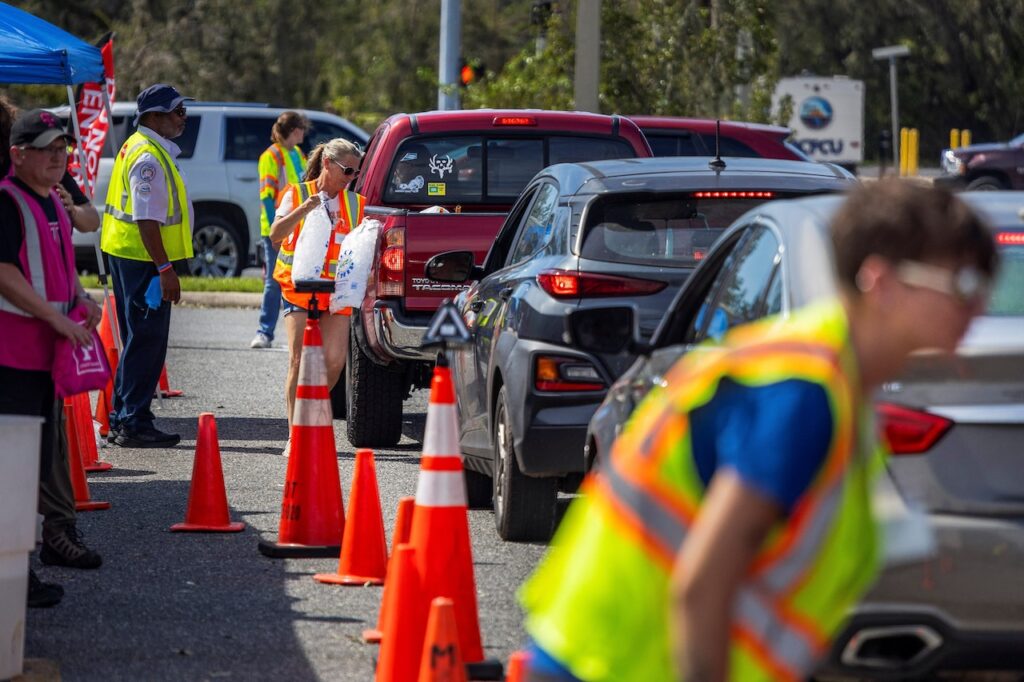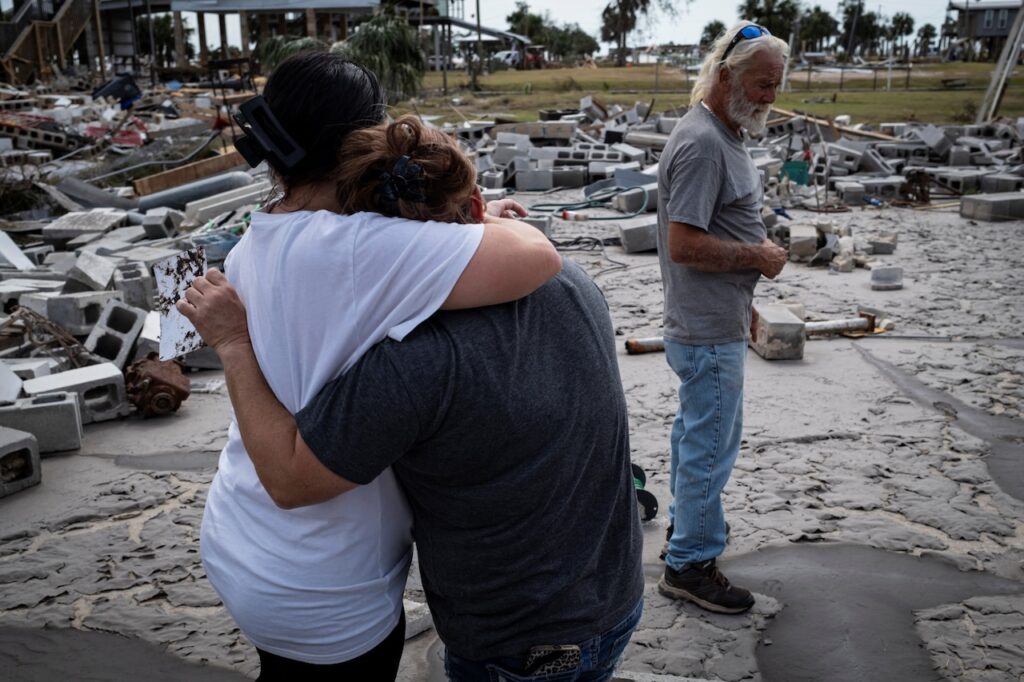MIAMI (OSV News) — Hurricane Helene’s broad impact across an entire swath of the U.S. South means resources will be stretched thin following the massive storm, according to Peter Routsis-Arroyo, the CEO of Catholic Charities of the Archdiocese of Miami.
Helene garnered Category 4 major hurricane status just before landfall along the Florida Panhandle Sept 26, 2024. The 500-mile-wide storm then carried catastrophic flooding and destruction through Georgia, North Carolina, South Carolina and Virginia.
Routsis-Arroyo, who has helped facilitate hurricane response efforts around Florida for several decades, said he spent Sept. 28 to Oct. 2 driving throughout some of the affected areas of the Dioceses of Pensacola-Tallahassee and St. Augustine in Florida’s Big Bend area. This trip included rural interior towns impacted by Helene.
The Archdiocese of Miami and Archbishop Thomas G. Wenski have launched an online relief fund appeal to support Catholic Charities’ efforts following the hurricane. One hundred percent of all funds received will be directed to provide humanitarian relief and assistance to those affected by the hurricane.
“The biggest thing (with Helene) is the magnitude of this storm and what the needs may be elsewhere,” Routsis-Arroyo said, following his drive through areas south of Tallahassee including the Florida towns of Live Oak, Cross City, Horseshoe Beach, Steinhatchee, Perry and Keaton Beach.

He pointed out that hurricane recovery efforts from last year’s Hurricane Idalia were still ongoing in some places, and that the damage he witnessed in the aftermath of Helene suggest a long-term effort that will likely be challenging in light of the storm’s equal or greater impact in the Carolinas and Tennessee in particular.
Florida Gov. Ron DeSantis recently announced the launch of Operation Blue Ridge, a comprehensive multi-state agency response aimed at assisting North Carolina and Tennessee in their recovery efforts, and which will mobilize a coordinated effort of Florida agencies to help those states recover.
As of Oct. 2, the governor’s office also reported that approximately 20,112 Floridians remain without power, while power has been restored to 2,382,773 accounts. The state has also distributed over 800,000 shelf-stable meals, more than one million liters of water, over 28,000 10-pound bags of ice and nearly 40,000 tarps to individuals in need.
For its part, the Catholic Charities offices of Pensacola-Tallahassee and St. Petersburg will be in need of financial support and in some cases volunteer and logistical assistance in the coming months and possibly years, Routsis-Arroyo said.
He is considering enlisting some of the Miami Charities’ staff to help with a mobile laundry truck operation planned for the St. Petersburg area, for example.
“Beyond the fact that Helene mushroomed into something much bigger, it really paralleled Hurricanes Debbie and Idalia in terms of impacting these really rural areas,” he said. “In Florida, the story is that St. Petersburg is dealing with some tremendous flooding and into those northern counties around Tampa.”
Routsis-Arroyo said he also met with dairy and poultry farm owners and farmworkers in the town of Mayo, northwest of Gainesville, where workers watched as Helene tore apart their homes and will now need assistance with temporary housing.
“I saw some trailers that were just flattened, and we heard how in the middle of the storm (the farmworkers) knew they had to get out as roofs were coming off, just running from trailer to trailer until they ended up in the trailer that was the strongest,” Routsis-Arroyo said. “They are just thankful they are alive.”
Gabe Tischler, emergency management specialist for Catholic Charities of Florida Inc., is working with government emergency resources to provide temporary housing for the workers in Mayo, he added.
In the coastal city of Horseshoe Bend, Routsis-Arroyo said he observed total destruction, including a government building that had washed away, and wondered how that town could fully recover again following direct hits from hurricanes in the past few years.
Routsis-Arroyo added that he was accompanied on his tour by one of his sons who works for Second Harvest Food Bank, which has set up food distributions throughout the region.
“Steinhatchee was another town that was literally destroyed. The only way we got access is that we were with Catholic Charities and Second Harvest,” he said.
Keaton Beach also had a huge recovery site underway and Catholic Charities had a very big distribution there.
The Catholic Charities offices of the Diocese of Venice likewise reported flooding and hurricane recovery needs in parts of its diocese, according to Routsis-Arroyo.
He noted that it will be a challenge to focus on some of the less publicized damage in Florida with so much attention on severely impacted places such as Asheville, North Carolina.
At least 215 have died across six states and hundreds of people are still unaccounted for.
“A lot will get routed out of the state of Florida but certainly our dioceses will need help to continue with long term recovery over the next few years,” he said. “This is going to leave the long-term work to be done by agencies such as Catholic Charities in Florida.”
Tom Tracy writes for the Florida Catholic, the news outlet of the Archdiocese of Miami.

